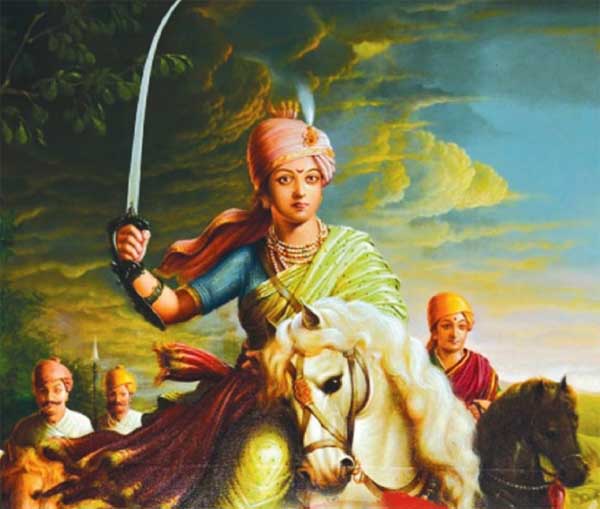Jhansi Rani Lakshmi Bai Punyatithi is observed in Jyeshta
month. It is the death anniversary of Jhansi Rani Lakshmi Bai – the brave queen
and warrior who fought valiantly against the British. Jhansi Rani Lakshmi Bai
Punyatithi 2025 date is June 2. As per Gregorian calendar she died on June 17,
1858.
Jhansi Rani Lakshmi Bai fought against the British during
the first war of Independence
in 1857.
When her husband died, Jhansi Rani Lakshmi Bai was denied to
rule her kingdom and the British took over the reigns.
She took over the kingdom by defeating the British and
declared independence.
The British returned to take back the city of Jhansi and in the battle
she inflicted serious damage to the British army but was defeated.
She then took refuge in Kalpi. She died fighting in the battle
of Kotah ki Serai.
How valiantly, like a man fought she
She, The Rani of Jhansi!
On every parapet a gun she set,
Rained fires of hell,
How well, like a man fought she,
She, the Rani of Jhansi
How valiantly and well! (Bundela Folk Song)
She, The Rani of Jhansi!
On every parapet a gun she set,
Rained fires of hell,
How well, like a man fought she,
She, the Rani of Jhansi
How valiantly and well! (Bundela Folk Song)
Rani Lakshmi Bai Facts
Rani Lakshmi Bai (19 November 1828 — 17 June 1858).
- Born into a Marathi Karhade Brahmin family in Benares, her father was Moropant Tambe and her mother Bhagirathi Sapre (Bhagirathi Bai).
- She was named Manikarnika Tambe and was nicknamed Manu.
- She was educated at home and was taught to read and write, and was more independent in her childhood than others of her age; her studies included shooting, horsemanship, fencing and mallakhamb with her childhood friends Nana Sahib and Tatya Tope.
- Lakshmibai married the Maharaja of Jhansi, Gangadhar Rao, in 1842.
- When the Maharaja died in 1853, the British East India Company under Governor-General Lord Dalhousie refused to recognize the claim of his adopted heir and annexed Jhansi under the Doctrine of Lapse.
- The 22-year-old Rani was unwilling to cede control joined the rebellion against the British in 1857.
- She led the successful defence of Jhansi against Company allies, but in early 1858 Jhansi fell to British forces under the command of Hugh Rose.
- The Rani managed to escape on horseback and joined the rebels in capturing Gwalior, where they proclaimed Nana Saheb as Peshwa of the revived Maratha Empire.
- Rani Lakshmibai was accustomed to riding on horseback. Her horses included Sarangi, Pavan and Baadal; according to historians she rode Baadal when escaping from the fort in 1858.
- She died in June 1858 after being mortally wounded during the British counterattack at Gwalior. She was badly wounded; not wishing the British to capture her body, she told a hermit to burn it. After her death a few local people cremated her body. This happened at Kotah-ki-Serai, near Gwalior.
- Through her courage and selfless action she attained immortality. Even her enemies sang her praise. She won the respect and admiration of those that fought against her.
Through her physical and mental strength, Rani of Jhansi showed that women are just as capable of leading armies and nations as men are. When we are down and out and lack courage, we look outside ourselves to find it and the best person to inspire us is none other than Jhansi Ki Rani - Rani Laxmi Bai.

